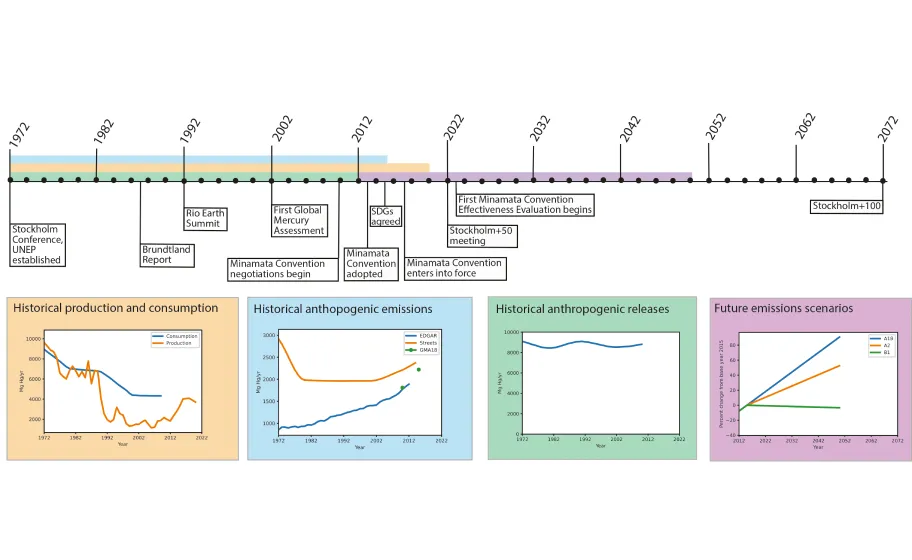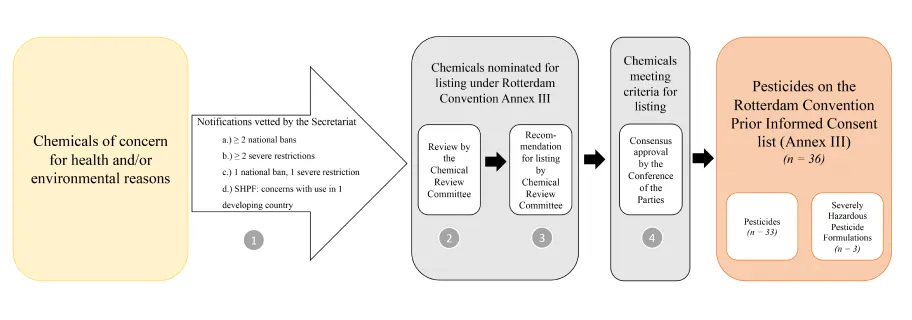Advancing pollution governance for sustainability
The Focus Group aimed to inform sustainability governance through a better understanding of how people and technology interact. Research developed new multidisciplinary analysis methods and examined empirical cases of pollutants, including mercury and pesticides. Results illuminated underappreciated dynamics of environmental and societal pollutant flows and trade-offs between governance approaches.




Focus Group Pollutants and Sustainability Governance
Prof. Henrik Selin (Boston University), Alumnus Hans Fischer Senior Fellow | Prof. Noelle Selin (Massachusetts Institute of Technology), Alumna Hans Fischer Senior Fellow | Fiona Kinniburgh (TUM), Doctoral Candidate | Host: Prof. Miranda Schreurs (TUM)
Human activities and technologies have fundamentally altered the Earth in ways that have both facilitated the development of modern societies and challenged the ability to protect and improve human well-being in the long term. In this Focus Group, we built and tested theories about how humans, technology, and the environment interact in the context of institutions and knowledge, to help advance sustainability governance. We did this by constructing richly described empirical cases of distribution and management of pollutants over time, applying interdisciplinary methods from across social sciences, natural sciences, and engineering. The research drew lessons for policy-making and practice on hazardous substances and other sustainability challenges.
The intentional and unintentional mobilization of large amounts of material substances into the environment and human societies provides rich data through which to analyze historical and present-day implications for sustainability. Some of these substances are naturally occurring elements, like mercury and carbon, while other chemicals are synthetic. Substances can be local, regional, and / or global pollutants that have severe negative impacts on human health and the environment. Management efforts involve both public and private governance, which may interact in complex and unexpected ways. Major empirical cases involved mercury pollution and pesticide uses, both of which pose health and environmental risks locally and through long-range trade and atmospheric dispersion. Mercury is emitted from a variety of sources globally, including coal burning, industrial processes, and use in artisanal and small-scale gold mining. These are all addressed by the global Minamata Convention on Mercury. Many pesticides are subject to global governance under the Stockholm Convention on Persistent Organic Pollutants and the Rotterdam Convention on the Prior Informed Consent Procedure for Certain Hazardous Chemicals and Pesticides in International Trade. Pesticide governance has historically focused on managing human health risks, but mounting evidence of biodiversity loss highlights these chemicals’ chronic environmental impacts.
A key Focus Group achievement was the development and application of a new Human-Technical-Environmental (HTE) systems framework, a structured and comprehensive method for assessing sustainability issues. [1] The HTE framework provides analysts from different disciplines a common way to advance systems-focused sustainability research. Focusing on mercury, we used the HTE framework to identify insights for systems analysis for sustainability, sustainability definitions and transitions, and sustainability governance. Related empirical research documented mixed global 50-year trends in mercury production, consumption, and discharges (see Figure 1). [2]
Figure 1

Image: Selin, H. & Selin, N.E. From Stockholm to Minamata and Beyond: Governing Mercury Pollution for a More Sustainable Future. One Earth 5(10), 1109–1125 (creative commons license)
Because mercury is emitted from coal burning, it connects closely to global and regional efforts on climate change and energy transitions. This links the Focus Group’s work to larger efforts in Miranda Schreurs’ research group on understanding climate and energy governance in the European Union and beyond. Topics explored through collaborations and conversations with the Focus Group included comparative politics of energy transitions, nuclear waste disposal, and phase-outs of legacy technologies and substances.
Work by the Focus Group on pesticides examined how private-sector led efforts to reduce pesticides use can interact with multilateral governance, using an empirical case of the listing of new substances under the Rotterdam Convention (see Figure 2). We documented “confounding interactions” that occur when private agricultural standard-setting bodies use the Rotterdam Convention's pesticide list to develop their own lists of banned substances, and unintentionally undermine the potential for international state-based governance to become more stringent. [3] This highlighted the need for scholars and policymakers to more fully consider complex interactions among actors in the context of global sustainability governance. Research also focused on linkages between pesticide regulation and biodiversity loss in the context of challenges to expand pesticide governance. Using an empirical case of pesticide regulation on a national level, we examined how the French government developed a new regulatory instrument for the most widely used pesticide worldwide, restricting its use based on the availability and costs of alternatives, rather than on health or environmental risks alone. Our analysis highlighted governance implications of decisions made in the commissioning and design of scientific expertise used by national governments as a basis for pesticide governance, demonstrating how expertise design plays a key role in defining the scope of policy options. [4]
Figure 2

Image: Kinniburgh, F., Selin, H., Selin, N.E., & Schreurs, M. When private governance impedes multilateralism: The case of international pesticide governance. Regulation and Governance (2022) (creative commons license)
Engagement of relevant research communities occurred through conference presentations, workshops, and collaborations. Conference presentations were made across multiple disciplines and professional organizations, including at the International Studies Association, the American Meteorological Society, the Earth Systems Governance Conference, the International Conference on Mercury as a Global Pollutant, and the International Sustainability Transitions Conference. Fiona Kinniburgh co-organized an emerging scholars’ workshop at TUM. Miranda Schreurs co-organized a Jean Monnet Network on EU-Canada Relations Workshop, attended by Fiona Kinniburgh and Noelle Selin.
Focus Group participants engaged with policy-makers to gather data and disseminate findings. Henrik Selin and Noelle Selin attended the third Conference of Parties to the Minamata Convention on Mercury. Fiona Kinniburgh participated in meetings of the Stockholm Convention and the Rotterdam Convention. Results of the Focus Group’s work informed graduate-level teaching at TUM and at Fellows’ home institutions Boston University and the Massachusetts Institute of Technology. Henrik Selin and Noelle Selin gave multiple guest lectures in TUM’s Politics and Technology Master’s program. The HTE framework was used to develop open-source case studies for teaching, available online at mercurystories.org.
[1]
Selin, H. & Selin, N.E. (2020); Selin, H. & Selin, N.E. (2022b).
[2]
Selin, H. & Selin, N.E. (2022a).
[3]
Kinniburgh, F., Selin, H., Selin, N.E. & Schreurs, M. (2022).
[4]
Kinniburgh, F. (2023).
Selected publications
-
Kinniburgh, F., Selin, H., Selin, N.E., & Schreurs, M. When private governance impedes multilateralism: The case of international pesticide governance. Regulation and Governance (2022).
-
Kinniburgh, F. The politics of expertise in assessing alternatives to glyphosate in France. Environmental Science and Policy, in press (2023).
-
Selin, H. & Selin, N.E. Mercury Stories: Understanding Sustainability through a Volatile Element. Cambridge, MA: MIT Press (2020).
-
Selin, H. & Selin, N.E. From Stockholm to Minamata and Beyond: Governing Mercury Pollution for a More Sustainable Future. One Earth 5(10), 1109–1125 (2022a).
-
Selin, H. & Selin, N.E. The Human-Technical-Environmental Systems Framework for Sustainability Analysis. Sustainability Science (2022b).
Full list of publications:
Henrik Selin
Noelle Eckley Selin